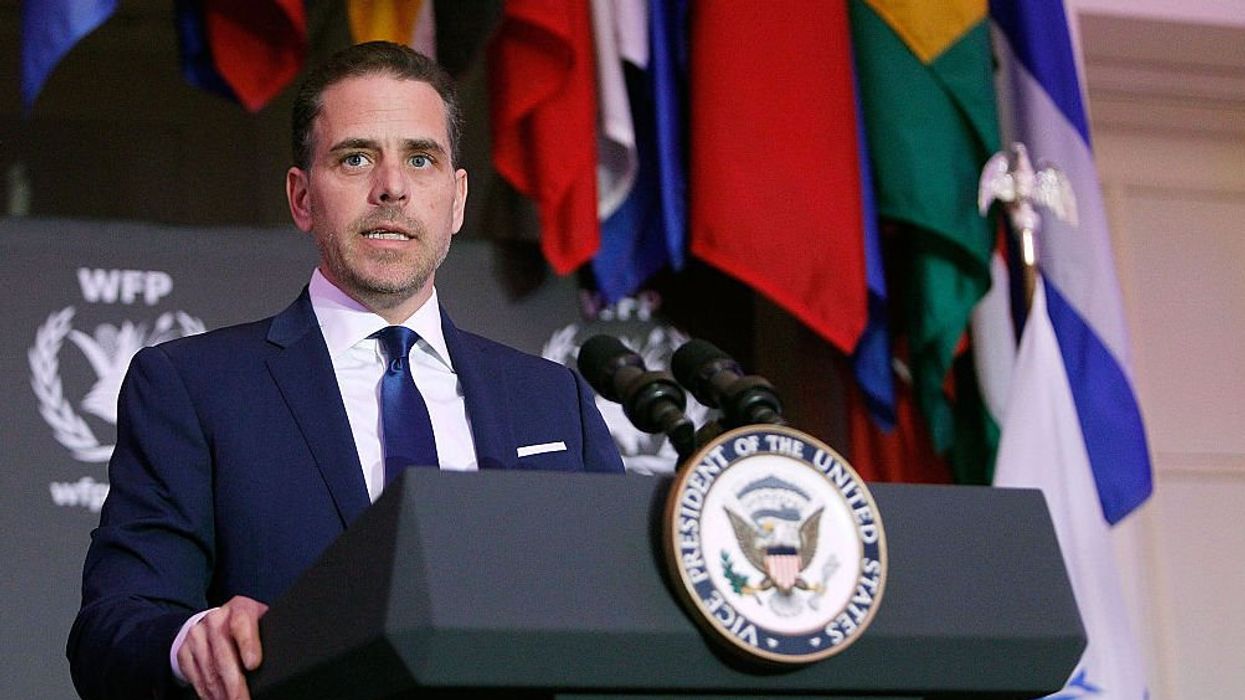
Paul Morigi/Getty Images for World Food Program USA

United States Attorney David Weiss sent a letter to House Judiciary Committee Chairman Jim Jordan (R) late Friday that raised more questions than it answered.
Last month, Weiss told Jordan that he had "ultimate authority" over the Hunter Biden investigation.
But subsequent allegations from IRS whistleblowers — who alleged under criminal penalty that Weiss did not have ultimate authority, but was repeatedly hamstrung by the Justice Department — called into question exactly Weiss meant. Those allegations also directly contradict what Attorney General Merrick Garland has claimed under oath.
In light of the contradictory information, Jordan asked Weiss for clarification on what "ultimate authority" means. Weiss' new letter came in response to that inquiry.
"I stand by what I wrote and wish to expand on what this means," the Delaware U.S. attorney told Jordan.
But what Weiss said next appeared to confirm the whistleblower allegations: that Weiss was not free to bring charges against Hunter Biden in other districts, but had to receive the approval of the U.S. attorneys in those jurisdictions.
As the U.S. Attorney for the District of Delaware, my charging authority is geographically limited to my home district. If venue for a case lies elsewhere, common Departmental practice is to contact the United States Attorney’s Office for the district in question and determine whether it wants to partner on the case.
If not, I may request Special Attorney status from the Attorney General pursuant to 28 U.S.C. § 515. Here, I have been assured that, if necessary after the above process, I would be granted § 515 Authority in the District of Columbia, the Central District of California, or any other district where charges could be brought in this matter.
The paragraph raised more questions than answers because Weiss simply restated DOJ policies, not what actually happened in the Hunter Biden case. Further, Weiss used conditional (i.e., "If ... I may" and "if ... I would") — not indicative — statements.
The question becomes: Why did Weiss include this specific information in his communications with Congress, and why did he communicate using hypothetical legalese?
After all, the whistleblowers alleged Weiss did not charge Biden in the District of Columbia and the Central District of California because those U.S. attorneys — both President Joe Biden's appointees — did not sign off on the charges. The letter, then, neither confirms or denies that is what happened, but suggests, as some legal experts believed, that is exactly what happened.
Importantly, the New York Times independently confirmed the allegations of non-cooperation just days before Weiss sent the new letter, calling into question exactly how much authority he wielded.
Meanwhile, the letter also failed to address allegations that Weiss asked to be named a special counsel but was denied. Garland has said Weiss never asked for such powers.
Like Blaze News? Bypass the censors, sign up for our newsletters, and get stories like this direct to your inbox. Sign up here!